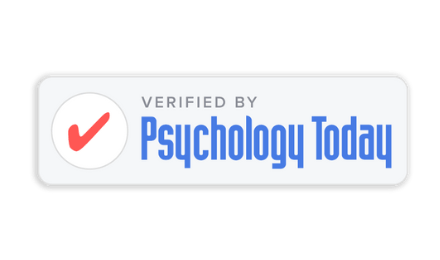What is Emotion-Focused Therapy (EFT)?
Emotion-Focused Therapy (EFT) focuses on helping people identify and understand their emotions and learn to manage them in a healthy way. It’s based on the belief that emotions are indicators of our needs and wants and that they can help us make decisions and develop relationships.
ETF was developed in tandem with John Bowlby’s Theory of Attachment, a profound developmental theory of personality and intimate relationships between children and parents that develop throughout childhood. This science has expanded our understanding of emotional bonds through childhood and the attachment behaviours observed from those individuals as an adult. Through an attachment theory lens, humans are seen as innately relational, social and wired for intimate bonding. The EFT model prioritizes emotion and emotional regulation as the key organizing agents in individual experience and fundamental relationship interactions.
Strengths of Emotionally Focused Therapy
- Based on research-based conceptualizations of individual growth, health and dysfunction and of relationship distress and adult love.
- It’s collaborative and respectful of clients, combining experiential Rogerian techniques with structural systemic interventions.
- Change strategies and interventions are specified.
- Key moves and moments in the change process have been mapped into three stages of therapy and key change events that predict success at the end of therapy.
- Validated by over 30 years of empirical research.
- Effective when applied to many different kinds of problems and populations.
EFT for Couples (EFCT)
EFT is a short term structured approach, typically about 8 to 20 sessions in length. Interventions in EFCT integrate a humanistic, experiential approach to restructuring emotional experience and a systemic structural approach to restructuring interactions. A substantial body of research now exists on the effectiveness of EFCT. This research shows large treatment effect sizes and stable results over time. EFCT is also used successfully with traditional and non-traditional couples, including same-sex couples. Preliminary research exists for couples dealing with depression, with anxiety resulting from trauma, with medical illness and with forgiveness dilemmas.
Goals:
- To expand and re-organize key emotional responses and, in the process, the organization of self.
- To create a positive shift in partners’ interactional positions and patterns.
- To foster the creation of a secure bond between partners.
EFT for Individuals (EFIT)
Emotion-Focused Therapy for Individuals (EFIT) is an evidence-based approach that explores the role emotions have on the human experience, helps individuals identify underlying attachment styles, and reshapes our relationship with emotions and others. Utilizing attachment theory, humanistic experiential and systematic interventions, counsellors help bring awareness to negative emotional responses and encourage emotional regulation. In EFIT, emotions are viewed as fundamental, given their powerful role in structuring our inner experiences, dialogue, everyday interactions, and personal motivation.
Goals:
- To engage in corrective experiences that positively impact models of self and others and shape stable, lasting change.
- To offer transformative moments where vulnerability is encountered with balance.
- To enable clients to move into the accessibility/openness, responsiveness and full engagement that characterises secure attachment with others.
- To enable clients to shape a coherent sense of a competent self that can deal with existential life issues and become a fully alive human being.
EFT for Families (EFFT)
Using the principles of EFT, Emotion Focused Family Therapy (EFFT) helps families restore and strengthen connection and trust and promote resilience in family relationships. EFFT aims to identify negative conflict cycles, repair emotional bonds and re-establish secure family patterns where attachment and caregiving responses are effective. EFFT provides families the flexibility and closeness necessary to promote individual growth and meaningful relationships across generations.
How it Works
EFFT counselling focuses on de-escalating negative family behaviours, identifying blocks in family relationships, and helping access underlying attachment-related emotions and individual needs that may be previously unacknowledged. Utilising the principles of attachment theory, the counsellor guides the family to new patterns of parental availability, responsiveness and coherent attachment styles. In turn, improving communication, accessibility and resiliency in the family unit as they face developmental change and life’s challenges.
Goals:
- Expand awareness of unacknowledged feelings associated with the family’s negative pattern.
- Identify behaviours that reinforce family distress.
- Promote awareness and access to underlying caregiving intentions and disowned attachment-related needs.
- Facilitate the sharing of unmet attachment needs and effective caregiving responses.
Sources
- https://iceeft.com/what-is-eft/








